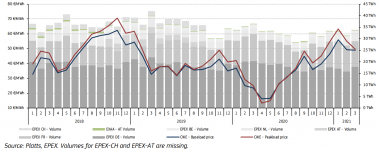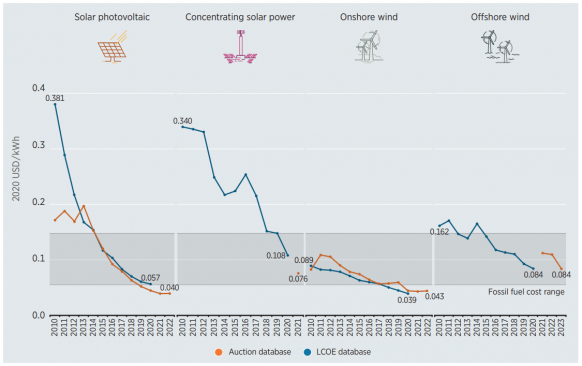Zero-subsidy solar poised to fill France's capacity shortfall
France's latest solar tender criteria limit cost savings and growth potential and corporate-backed projects could see far larger jumps in capacity.

Related Articles
French solar activity is growing as the government races to catch up with national renewable energy targets. Last month, Korean group Hanwa Q cells announced it would acquire RES Group's French business RES Mediterranee while other recent takeovers include the acquisition of developer Enerpole by German group BayWa.
France installed a record 1.4 GW of solar power in the first half of 2021 - almost four times the capacity installed in the same period a year ago - but remains far behind the goals set out in its multi-year plan. France must install over 3 GW of solar power per year to achieve its target of 20 GW by 2023 and maintain this rate to achieve its goal of 31 GW-44 GW by 2028.
To accelerate deployment, the government will launch tenders in the coming months for a new feed-in premium (FiP) on top of market prices, replacing existing tender frameworks. The new 30.5-billion-euro ($35.8 billion) scheme was approved by the European Commission (EC) in July and France plans to allocate 3.8 GW of PV capacity in 2022.
Ground-mounted PV costs are estimated at 55 euros/MWh according to French energy regulator CRE and the government predicts costs could fall to 40 euros/MWh by 2028, reducing the need for subsidies.
Power prices in Central & Western Europe
(Click image to enlarge)
Source: European Commission's quarterly electricity market report
However, the tender criteria restrict developers’ ability to optimise designs and minimise costs and widespread permitting challenges continue to hamper projects. An emerging private offtaker market could provide France the acceleration in capacity it needs to meet its targets.
Farms first
France's vast areas of farmland represent a significant development opportunity but the tender criteria limits project sizes to 30 MW except on degraded land or as combined agri-solar (agri-PV) projects. This curbs the potential for economies of scale that have driven down global solar costs.
Global renewable energy costs by technology
(Click image to enlarge)
Source: International renewable energy agency (IRENA)
Renewable energy developer Neoen was awarded 365 MW of solar projects in France's last nine tenders and almost two-thirds of the capacity will be installed on degraded land or car-park shelters.
A lot of France’s utility-scale projects are being developed on former military, quarry and landfill sites, Benoit Roux, Director of Solar, France at BayWa, said.
BayWa is a leading developer of agri-solar and floating solar projects and predicts greater activity in both these areas in France. Floating solar projects can bypass land contention issues and developers like BayWa are using larger projects and a growing pool of deployment learnings to reduce costs.
Agri-solar projects are also moving from pilot to commercial scale and France's new tender rules offer additional incentives for innovative projects, Roux noted.
Approval risks
Developers also face growing permitting challenges in many regions of France, Roux said.
Permitting timelines are lengthening as applications rise and quality sites become scarcer while more "peripheral authorisations" are being required in areas such as species protection, forestry clearance and water preservation, he said.
Longer permitting timelines increase costs and sometimes derail projects. The approval of building permits takes at least two years and often up to four years, Guillaume Decaen, France Development Director at Neoen, told Reuters Events.
France's latest tender criteria also restricts the carbon impact of PV modules to below 500 kg carbon/kW, limiting the choice for developers and increasing costs, Susanne von Aichberger, Senior Analyst Solar Power at IHS Markit, said.
“Bureaucracy is relatively high, capex is higher and development of solar parks tends to take longer than for example in Germany," von Aichberger said.
Big ideas
As demand for renewable energy grows, some developers are looking to bypass the tender requirements and build larger projects without subsidies.
France's large energy consumers have traditionally benefited from long-term low-cost nuclear power contracts but plummeting solar and wind costs have ignited interest in long-term renewable energy power purchase agreements (PPAs).
A huge 1 GW solar project recently announced by Neoen and French utility Engie highlights the growing confidence in the renewable PPA market.
Located in the Gironde region in south-west France, the Horizeo project includes energy storage and green hydrogen facilities and the power would be sold through long-term PPAs, avoiding the need for subsidies. The project would be built on private land that is dedicated to maritime pine production and currently used by hunting groups and will be subject to public consultation and environmental approvals.
Private offtakers are currently looking to secure contracts below 47 euros/MWh, Decaen said. The average day-ahead power price in France was 50.20 euros/MWh in 2018, 39.45 euros/MWh in 2019 and 32.29 euros/MWh in 2020, when Covid lockdowns sliced demand, figures from CRE show.
“We are capable of reaching grid parity, provided we have the right projects in the right place,” Decaen said.
Reporting by Neil Ford
Editing by Robin Sayles


